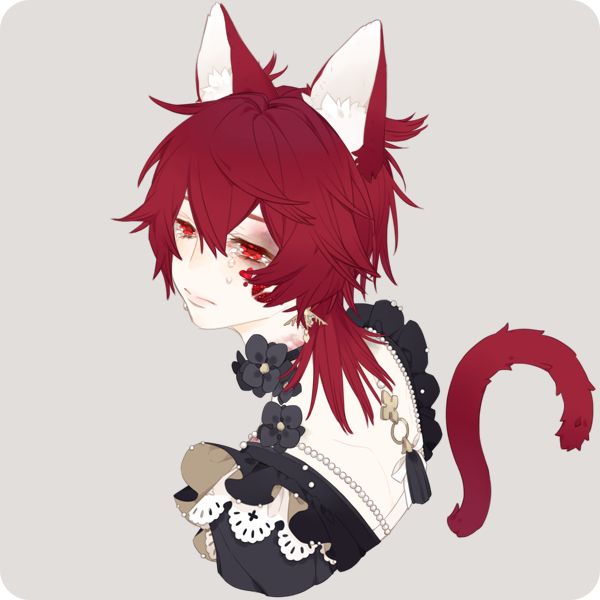Depends on the anthropologist, era, and what culture/society they are talking about. Some societies don’t have strictly distinct relationships between family/extendedfamily/tribe, and some have vert strict hierarchies within extended families that create the traditional idea of ‘clans’.
Early structuralists were very keen on creating the distinction between ‘kin-groups and tribes’, but it stopped being in vogue around the 1960’s. Still important work, but not considered as ‘essential to understanding the development of civilization from the Platonic model’.
The issue is that it can get messy pretty quickly, because the whole idea of strictly genetic family relations comes mostly out of herding cultures, whereas other cultures, especially hunter-gatherers, had traditions like, “When you are with us, your name is Jon, who was my grandfather, which means you are my grandfather and that you have the obligation/privilege to take care of my family if something happens to me”. Which means that when the anthropologist comes around you call that dude “Jon, my grandfather” even though he is clearly the same age or even younger than you, and maybe married/sleeping with your daughter and the anthropologist has to care enough to figure out what is actually going on.
This. In some places names are a collective possession of the group and you’re given a name that had belonged to many people before you. While you’re alive no one else can be given the name because, well, you have it! Once you die the name goes back to your group until it’s time to give it to a new person. And while you have the name you are in some senses the same person as previous holders of the name.
Check out “War in the Tribal Zone”. It’s a collection of papers from the 90s that partially address this question. The central thesis that ties them together is that the “tribe” is an organizational structure that people who don’t have much formal hierarchy tend to adopt when confronted with organized imperialistic states. For instance, if the state wants to trade, the state tends to expect one representative who speaks for many people. This position might not exist in a society, but often they’ll create that position, or someone will opportunistically claim it, to trade in desirable goods.
In another case a society might have to resist and imperial power militarily and find it necessary to have more structured military, political, and logistical organizations in order to conduct war and diplomacy.
In this framework a tribe is an organizational system that arises in societies that have little formal hierarchy, government, or differentied social and political roles in order to better interact with highly structured and hierarchical states on their borders.
That’s a really great insight that I hadn’t fully considered
I thought clan implied genetic/familial relation whereas tribe implied purely social relation but that’s just me, who is not an anthropologist.
Notions of who is and isn’t part of your family or lineage can be wildly, wildly different from modern Western ideas that the family is primarily a genetic relationship. Things like, your mother’s sister’s sons are part of your family, but your mother’s sister’s daughters are part of her husban’s family and not part of your family.
It actually caused the great rift that forced Anthropology to drag it’s head out of it’s imperialistic ass. This guy named Chagnon was bribing Yanomami people in the Amazon to tell him who their genetic relatives were. This was a big taboo (and they almost certainly lied to him) which raised massive ethical issues. And on top of that, what he was trading were shotguns and machetes. The introduction of lots of weapons may have screwed up the balance of power in the region badly and set off a lot of very destruction wars, getting many people killed.
Well, it set off a war in western anthropology between Chagnon supporters and people who were horrified by his unethical behavior and by the destruction it probably caused. It lead to a pretty vicious internal debate that lasted for decades and ultimately resulted in both anti-imperialist anthropology and the formation of modern ethical standards in anthropology. In some ways the debate is ongoing, as the question of whether anthropologists are in any way helping our subjects, or merely preying on them, is being discussed. There’s a thread with some merit that says western anthropologists should stop as we can only be parasitic outsiders and the knowledge we produce often harms and rarely helps our subjects and partners. From there the question of how we can transform anthropology in to something that is useful and helpful to the people we study has emerged.
This was one of the reasons I personally abandoned the notion of professional anthropology, because well I found that the most useful form of it was to study western culture, and the most accurate critics were nearly always some flavor of Marxists. The issue is the only way to make any money is to exploit Native groups or literally work for the State department. Or fight the administration in a continually losing battle for funding. None of which particularly interested me.
It’s a valid and valuable question and for my part I actually regret grouping genetic with familial in my wording as a social family can be just as or more important than genetic family, something any of us but particularly those of us with shitty genetic family members can relate to.
That being said I think anthropology as a field can be as valuable as it can be ethical, so essentially the information from it can only be valuable if it comes from no contact or unintrusive contact. I think the toughest question is how to make that contact unintrusive though.
Arab tribes are familial
Now, an anthropologist is likely to dedicate some paragraphs of his work to just talk about the history of the terms and how they are applied and then choose, either arbitrarily or in accordance to what their teachers do, what meaning they want to ascribe to it. Which means it, funnily enough, kinda depends on where you’re from.
Some traditions/places will claim that both clans (families) and tribes are tied to a common ancestry (which is either real or invented). The difference there being a matter of clans being sub divisions of tribes.
Other places will claim tribes as a cultural subgroup, somewhat similar to the older european notions of ‘nation’, while clan is what’s driven by common ancestry.
If this sound arbitrary it is because it is. These words - tribe, clan, ethnicity, nation, etc - are arbitrarily translated between languages and cultures. Tribal belonging for the native tribes in the United States is a concept of their own, which exists for their own needs. Tribal belonging for an arab levantine in a modern nation state is, likewise, different from tribal belonging in the valleys of Afghanistan. Notions of cultural ties, commonalities and ancestry are essentially in a spectrum and they affect which word is used. And then there’s what we used to have in industrial and post industrial societies, ‘cultural tribes’ forming around aesthetics and fandoms.






